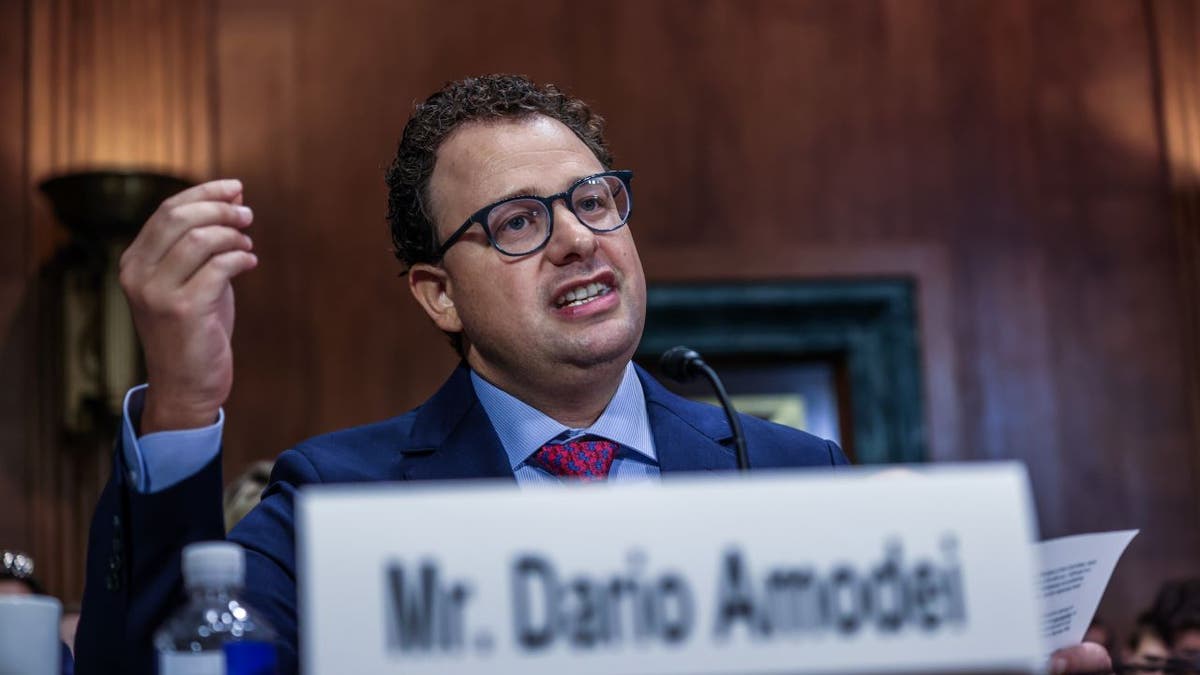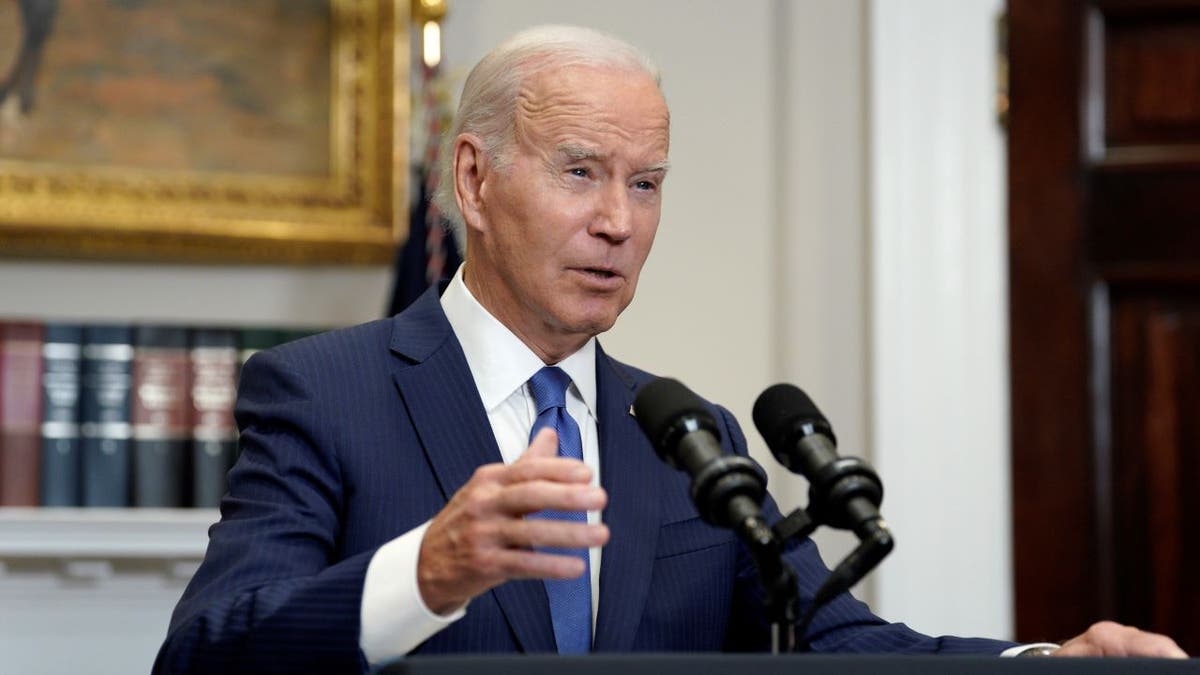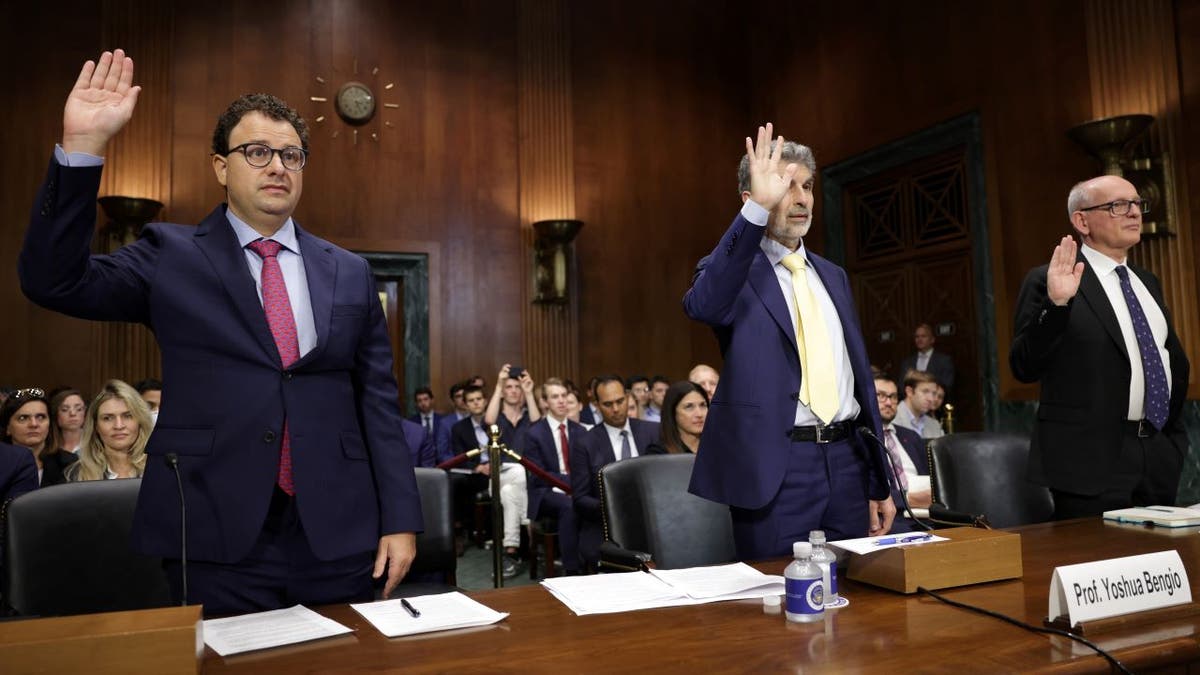Biden talks about the future of artificial intelligence
Fox News correspondent Gillian Turner has the latest on the president's focus amid calls for an impeachment inquiry on 'Special Report.'
The CEO of an artificial intelligence "safety and research company" warned the Senate Tuesday that AI could be just a few years away from giving bad actors around the globe the capacity to carry out biological weapons attacks.
Dario Amodei, CEO of Anthropic, told a Senate Judiciary subcommittee that the prospect of AI helping people develop and deliver these weapons is a medium-term risk that his company is grappling with today.
"Over the last six months, Anthropic, in collaboration with world-class biosecurity experts, has conducted an intensive study on the potential for AI to contribute to the misuse of biology," he said.

Dario Amodei, chief executive officer of Anthropic, during a Senate Judiciary Subcommittee on Privacy, Technology and the Law hearing in Washington, DC, US, on Tuesday, July 25, 2023. The hearing is titled "Oversight of A.I.: Principles for Regulation." Photographer: Valerie Plesch/Bloomberg via Getty Images
"Today, certain steps in bioweapons production involve knowledge that can’t be found on Google or in textbooks and requires a high level of specialized expertise — this being one of the things that currently keeps us safe from attacks," he added.
He said today’s AI tools can help fill in "some of these steps," though they can do this "incompletely and unreliably." But he said today’s AI is already showing these "nascent signs of danger," and said his company believes it will be much closer just a few years from now.
"A straightforward extrapolation of today’s systems to those we expect to see in two to three years suggests a substantial risk that AI systems will be able to fill in all the missing pieces, enabling many more actors to carry out large-scale biological attacks," he said. "We believe this represents a grave threat to U.S. national security."
Amodei added that Anthropic has briefed government officials on this assessment, "all of whom found the results disquieting."
OPENAI CEO SAM ALTMAN HAS DONATED $200,000 TO BIDEN CAMPAIGN

President Biden speaks at the White House after seven leading artificial intelligence firms agreed to voluntary safeguards designed to minimize abuse of and bias. (Yuri Gripas/Abaca/Bloomberg via Getty Images)
While his company supports the safe developing of AI, he said this dangerous risk posed by AI won’t go away because of corporate actions alone.
"Private action is not enough," he said. "This risk and many others like it requires a systemic policy response."
Amodei suggested three steps for the government to take, and outlined those steps in the Senate hearing that was aimed at sorting out the "principles" of AI regulation. First, he said the government should take steps to put limits on the export of equipment that can help people develop AI systems.
"The U.S. must secure the AI supply chain in order to maintain its lead while keeping these technologies out of the hands of bad actors," he said.
WHITE HOUSE GETS SEVEN AI DEVELOPERS TO AGREE TO SAFETY, SECURITY, TRUST GUIDELINES

Amodei, professor at the Universite de Montreal Department of Computer Science Yoshua Bengio, and professor of computer science at the University of California, Berkeley, Stuart Russell are sworn in during a Senate hearing on AI. (Alex Wong/Getty Images)
He also recommended a tough testing and auditing regime for all powerful, new AI models, and said those models shouldn’t be released to the public until they pass those tests. And third, he said more work needs to be done testing the systems used to audit AI tools.
"It is not currently easy to detect all the bad behaviors an AI system is capable of without first broadly deploying it to users, which is what creates the risk," he said.
Amodei’s company is one of seven that agreed last week to a set of guidelines promoted by the White House that are aimed at developing safe, secure and trustworthy AI tools.
CLICK HERE TO GET THE FOX NEWS APP
Amodei was at the White House last week as Biden announced the initiative, along with representatives from Amazon, Google, Inflection, Meta, Microsoft and OpenAI.






